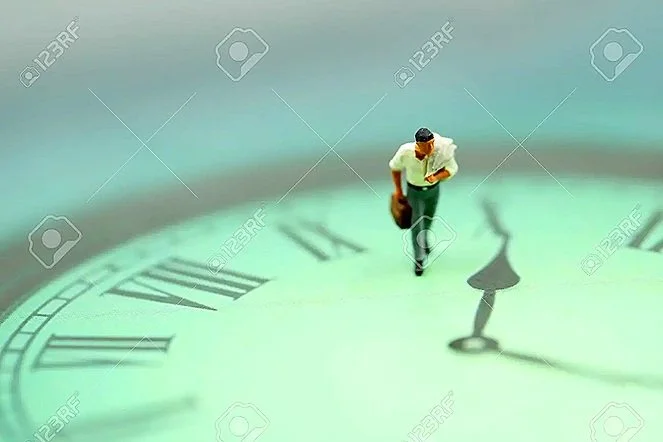A few ideas as we move into 2023
Here we are in January, as yet another year has come to an end.
Many of you have a special association with the Holiday season. Some with huge Christmas parties. Others may have put extra pressure on themselves to hit their targets and engagements for a full social calendar that spans November through December.
There were those of you who were maneuvering around relationship issues for the holiday season, a time that seems to elicit family drama.
Yet with the ringing of bells and blowing of horns at midnight, we heralded in a new year on January 1.
We find Living seems to slow down after the 1st, all of a sudden calmer, and you a bit more mindful. Life seems to move at a different pace, you may have even taken a conscious different approach to how you will live the day, the year, or the rest of your life. Maybe between the meals and partying of the last months, you had come to some conclusions as to how you would close out the year and how you would begin this new one. Now that things have slowed, you may feel it’s time to prep plans or at least focus on your plans for the upcoming year.
Yes, it is that time again to take a breath, to look around your world, or maybe even recline with some of those personal reflections on how the year went. You may want to track to see if your end game is still in sight, or has your goal line been moved up, or to see what could have slowed you down or stopped you from reaching your end goal before the clock ran out.
Kudos for those who had taken to heart and done the mid-year “checkup” recommended July 2022, because you may be a bit ahead of the game (See the July 26, 2022 -Time For The Half Time Huddle blog in siteofcontact.net ).
So, to be clear, I am not talking about making new year’s resolutions, but I am talking about planning the year ahead; I’m talking about potential changes in how you’d handle your personal life, business, or career life moving forward.
While we are looking forward to a new year, let us always be in the Now. We also want to be cognizant to Live each moment of our lives with self-compassion which will help us live each day fully present and focused on enjoying life. If you are not enjoying life, then that is a must to incorporate into your life plan.
This is to say that we want to be balanced in our life, not only to stay practical ( yes, we still have to pay our bills, and still have responsibilities towards others), But to remember in your new year plan, to incorporate ‘enriching your life’, as if it was a survival mask that you put on first, to be able to carry out that feat for others.
Journaling is a good resource for focus about your goals, challenges, and accomplishments. No matter where you are in life, if you are not journaling, you want to, for it is a good place to start to turn your life around or keep it on track.
Beginning a Journal in January would be a perfect time to start. Let’s Think about January 1st of each new year as a beginning to a new start on life. Then adding to that a journal each year as a way to create a new start with a clean slate. You can hit the reset button and do things differently, if need be. It doesn’t matter if you consider the past year a good or a bad year. Journaling gives you a chance for a better one in the Coming Year.
So, Celebrate or Cry over the past year. But never forget that life moves forward, and you are going to engage with it one way or another. Why not try consciously and doing it on your own terms.
Questions you would want to consider for clarity when writing your journal are these:
What do you want to focus on in the new year?
What do you want to do for yourself, your relationships, or career, in this new year?
If you have planned out the year, then ask yourself what will you do if things don’t go according to plan? (Remember, it is not wise to think that Every detail in a Plan will go as planned. Be prepared for setbacks.)
Think - What can I control? An example of this is if you are a writer, then you may say: “I’m going to publish one article a week, and I will spend one day a week on promoting that article.” This is something You can directly see yourself in control of achieving.
Another example would be if you were in business for yourself, you can’t control how many people buy your products without focusing in on your effort and the effectiveness of your skills. You may want to consider how many people is it possible for you to reach? What steps are you going to take to reach them? How well do you know your product or service, to have someone else want to purchase it?
A year is enough time to make a lot of things happen. One can make a big impact by doing small increments of working toward your goal each day, so that in time, after a few weeks to a few months, you will find you are mastering skills, working on your character, and building relationships that are better than you have ever had before.
In this new year you may find that chasing your dreams, might mean finding out that the time has come when you will have to stop doing what you are doing in the way you were doing it. You need to move it up a notch or have it disengaged from its present form. To do that, you will need to bring self-awareness. This will notify you as to whether to keep at it, or to decide if this is the time to pivot or quit a particular action.
Self-awareness is a skill that can take years to develop, or that can be shortened by working with a Mentor or Coach. When you use Self-awareness combined with Self-Reflection you will see that Life is full of paradoxes, and like Alice in the Looking Glass, that there is never one relative truth or ‘right’ path. The only path that’s right for you is the path YOU chose, and that may not be the same one that you are on.
Self-reflection is a powerful way to discover your goals, strengths, and weaknesses. It requires space — a chance to quiet the mind and to be still, to take advantage of the options afforded to you.
Now with a focus and thinking about the new year, don’t forget to be in the moment, to make work equal play; To make time for self-reflection and to have self-awareness; and to have a good time engaging and enjoying the company of others.
And when January 1st comes around in the following year, you wake up with these practices under your belt. You are ready to make work into play out of your plans and goals; and you are looking forward to conscious success, one small step at a time.
Happy New Year.
Calvin















